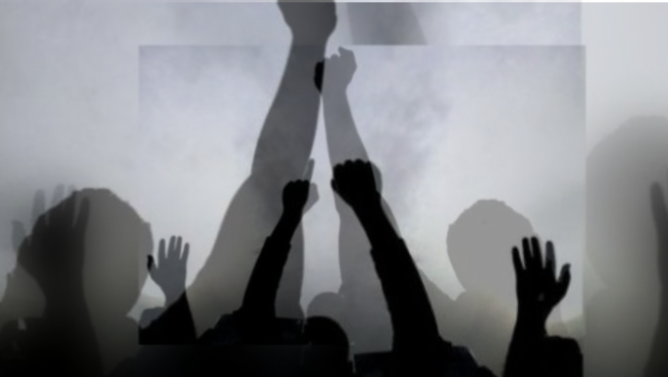Tunisians protest against president's power grab as opposition deepens
"Step down." The crisis has endangered the democratic gains that Tunisians won in a 2011 revolution that triggered the "Arab spring" protests and has also slowed efforts to tackle an urgent threat to public finances, worrying investors. Saied has said his actions, which his opponents have called a coup, are needed to address a crisis of political paralysis, economic stagnation and a poor response to the coronavirus pandemic.

- Country:
- Tunisia
About 3,000 demonstrators gathered in Tunis on Sunday under a heavy police presence to protest against Tunisian President Kais Saied's seizure of governing powers in July and called on him to step down. Saied this week brushed aside much of the 2014 constitution, giving himself the power to rule by decree two months after he sacked the prime minister, suspended parliament, and assumed executive authority.
"The people want the fall of the coup," they chanted in the center of Tunis along Habib Bourguiba Avenue, a focal point of the demonstrations that ended the rule of former President Zine El Abidine Ben Ali on January 14, 2011. "Step down." The crisis has endangered the democratic gains that Tunisians won in a 2011 revolution that triggered the "Arab spring" protests and has also slowed efforts to tackle an urgent threat to public finances, worrying investors.
Saied has said his actions, which his opponents have called a coup, are needed to address a crisis of political paralysis, economic stagnation, and a poor response to the coronavirus pandemic. He has promised to uphold rights and not become a dictator. Nadia Ben Salem said she traveled 500 kilometers (311 miles)from the south to express her anger in the protest.
"We will protect democracy...the constitution is a red line," she said, holding up a copy of the constitution. Saied still has wide support among Tunisians, who are tired of corruption and poor public services and say his hands are clean.
He has not put any time limit on his seizure of power, but said he would appoint a committee to help draft amendments to the 2014 constitution and establish "a true democracy in which the people are truly sovereign". Tunisia's largest political party, the moderate Islamist Ennahda, has called Saied's moves "a flagrant coup against democratic legitimacy" and called for people to unite and defend democracy in "a tireless, peaceful struggle". Ennahda has been the most powerful party in Tunisia since the 2011 revolution that led to the ousting of its long-time president, playing a role in backing successive coalition governments.
But Saied's coup has left it facing a severe split: More than 100 prominent officials of Ennahda, including lawmakers and former ministers, resigned on Saturday in protest at the leadership's performance. Egypt, Saudi Arabia, and the United Arab Emirates, which are suspicious of Islamists across the Middle East, have expressed support for Saied.
Tunisia's influential labor union on Friday rejected key elements of Saied's action and warned of a threat to democracy as opposition widened against a move his foes call a coup. The first protest against Saied since his intervention on July 25 took place last week. It consisted of several hundred people.
"The language of dialogue has been disrupted with Saied...He does not like dialogue," said independent lawmaker Iyadh Loumi. "He wanted to isolate everyone and he is taking all power...Saied must be sacked and put on trial."
Four other political parties issued a joint statement condemning Saied on Wednesday and another large party, Heart of Tunisia, has also done so.
(This story has not been edited by Devdiscourse staff and is auto-generated from a syndicated feed.)










